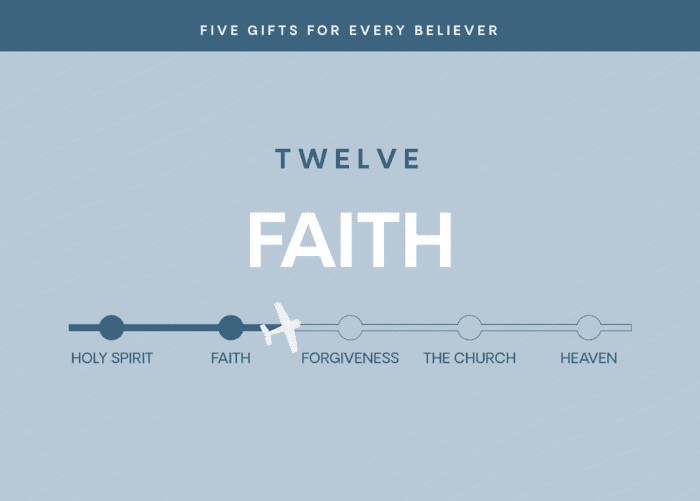
The Flight
11. The Holy Spirit

The chairman reported that the church roll now stood at one hundred and twenty members. They did not own a building but were meeting in a room they had rented in the city.
The prayer meetings were well attended, and there had been a lot of discussion about how they should fill a vacant leadership position. But besides that, not a lot was happening.
The task of reaching their community was beyond these people. There were only a few of them, they had very little money, and outside of their meeting place, the culture had very little room for their message. That’s what it was like for the church at the beginning of the book of Acts.
But Jesus had spoken about an event that would change all that.
In a few days, they would be “baptized with the Holy Spirit” (Acts 1:5).
They did not have to wait long. Just ten days after Jesus ascended into heaven, there was a festival called Pentecost. It was a big celebration, and Jerusalem was crammed with visitors from many countries (Acts 2:5). This was when the Holy Spirit was poured out on the church.
The gift of the Holy Spirit changes everything. The Holy Spirit convicts us of sin, brings us new life, generates faith in our hearts, and applies all that Jesus has accomplished for us on the cross so that we have peace with God, grow in likeness to Christ, and will finally be made perfect in heaven.
A sound like the wind
When the day of Pentecost arrived, they were all together in one place. And suddenly there came from heaven a sound like a mighty rushing wind, and it filled the entire house where they were sitting. (Acts 2:1–2)
In the ancient world, many languages use the same word for “wind,” “breath,” or “spirit.” The sound of the wind is similar to the sound of breath, only it is much louder, and it lasts longer.
Before Jesus ascended into heaven, He breathed on His disciples and said, “Receive the Holy Spirit” ( John 20:22). Jesus was explaining what would happen on the day of Pentecost.
So, when the disciples heard a sound like the rushing wind just a few days later, they would immediately associate it with the sound of Jesus breathing on them and recognize that this was the fulfill- ment of what Jesus had promised.
At the beginning of the Bible story, God breathed into Adam. A lifeless corpse lay on the ground until God gave it the kiss of life. Then Adam became a living being. The church is the body of Christ, but it was like a corpse until Jesus breathed the life of His Spirit into it. God breathed life into His people, and they were never the same again.
Great balls of fire
And divided tongues as of fire appeared to them and rested on each one of them. (Acts 2:3)
A ball of fire divided into individual flames, or “tongues” of fire, which came to rest on every person in the room. Something like this had happened before. In the Old Testament, God appeared to Moses in flames of fire resting on a bush. The amazing thing is that neither the bush nor the people were burned.
When God appeared in the fire, He commissioned Moses to lead His people out of slavery in Egypt. Now, on the day of Pentecost, God commissioned His church through the same sign.
Try to imagine yourself in the room as God’s fire comes down. Who do you think it will land on? Peter? James? John? Or perhaps each of the twelve apostles?
As the fire comes down, it divides into separate flames. Looking up, you realize that one of these flames is coming toward you. And when you look around at the others in the room, you see that a flame rests on every one of them.
In the Old Testament, God gave His presence and power to some of His people. Now, He was giving His Spirit to all of them. God was commissioning every believer to advance His purpose in the world.
They spoke in other tongues
And they were all filled with the Holy Spirit and began to speak in other tongues as the Spirit gave them utterance. (Acts 2:4)
Suddenly and spontaneously, each of the hundred and twenty believers found that they were able to speak in languages they had never learned.
This was a reversal of what had happened long before. Early in the Bible story, God came down and broke the momentum of man’s rebellion by confusing human language at the tower of Babel (Genesis 11).
It’s not hard to imagine what happened. People who spoke the same language were drawn together. Then the different language groups separated from each other, spreading out across the face of the earth.
The Day of Pentecost was exactly the opposite. People from every nation under heaven had gathered in Jerusalem (Acts 2:5), and when the Spirit of God came, they all heard the good news of Jesus Christ in their own language.
At Babel, the tongues were a judgment from God leading to confusion and people being scattered. At Pentecost, the tongues were a blessing from God leading to understanding and people being gathered.
To every tribe and nation
When the crowds in the city heard the sound of the wind, they headed in the direction from which it had come to see what was going on (Acts 2:6). When they arrived, they heard the believers declaring what God had done in different languages.
If you had been a visitor to Jerusalem that day, you would have looked for someone who spoke your language. And that’s what hap- pened. Small groups gathered round each of the believers, and they all heard what God had done in a language they could understand.
God’s promise to bless all the families of the earth was being fulfilled, and it continues to be fulfilled today. The good news of what God has done in Jesus is for all people. God wants it proclaimed in every language. And all who believe have a part to play in communicating this good news.
Whose language can you speak? Perhaps you can speak in a way that children or young people can relate to. Maybe you can speak a language that will allow you to communicate with people from another culture. Maybe you can learn a language and be the means by which others hear the good news of Jesus.
God has put a circle of people around you, and you are the one who can bring the good news of what God has done to them.
Wind, fire, and tongues today
How should we understand the remarkable events on the day of Pentecost? God teaches us through the wind, the fire, and the tongues what He wants to do among His people.
God breathes life into His people. When that happens, the church is no longer an inward-looking organization that functions at a merely human level; it is a vibrant body filled with the life of God.
God commissions not just a few of His people for ministry, but all of us. The presence and the power of Almighty God rests upon every believer in the Lord Jesus Christ. And God’s great purpose is that His blessing will flow to all nations through His people.
Questions for Reflection and Discussion
Details
Next

12. Faith
Take the First Step to Open Your Bible
Join 35,000+ people who get ‘Open Today’. Every Wednesday you’ll get resources designed to inspire, encourage, and challenge you in opening your Bible.